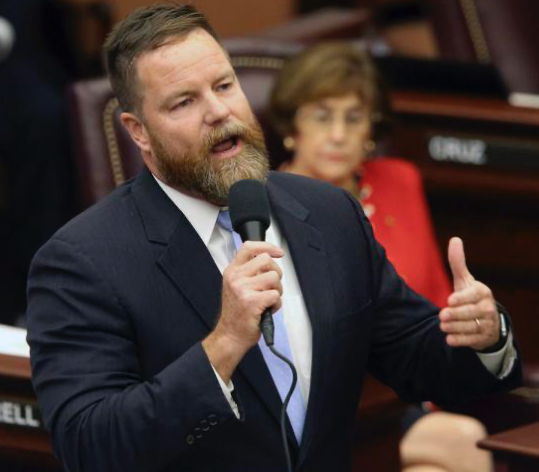By John Haughey
The Center Square
July 15, 2021

The DeSantis administration is seeking an additional $1.1 billion in federal Medicaid dollars available under the American Rescue Plan over the next two years for home- and community-based services (HCBSs) that serve nearly 110,000 Floridians.
Sen. Aaron Bean, R-Fernandina Beach, confirmed Tuesday the state’s Agency for Health Care Administration (AHCA) submitted its proposal Monday night to the federal Centers for Medicare & Medicaid Services (CMS) to allow the state to draw a 10 percentage-point increase in Medicaid funds.
Bean said $191 million will be used to trim a 20,000-person waiting list for enrollment in Florida’s ‘iBudget’ program, which provides Medicaid HCBS for people with intellectual and developmental disabilities.
Most of the $1.1 billion request – more than $623 million – will be allocated for one-time payments to businesses that provide HBCS for Medicaid clients.
The 10 percentage-point boost in federal Medicaid funds for HBCS programs is available for three years under a provision in the $1.9 trillion American Rescue Plan, the stimulus package approved by Congress and signed by President Joe Biden in March.
The state’s $100 billion Fiscal Year 2022 (FY22) budget, which went into effect July 1, includes $44 billion in healthcare spending. Of that, Medicaid consumes $33.7 billion, an increase of $2 billion from FY21.
The budget, however, did not include the money Florida would receive if it secured the Medicaid HBCS funding boost, which does not require a state match to garner.
The original deadline to apply for the 10 percentage-point hike was June 13 but the state received an extension to July 12, which was met when the AHCA submitted its Monday proposal.
Bean, who chairs the Senate Health & Human Services Appropriations Subcommittee and is a member of the 14-member Joint Legislative Budget Commission authorized to make budget decisions between legislative sessions, said the state is being careful by tapping into only two rather than the full three years of the funding boost even though, without a required state match, it’s “free” money.
“Some of the most expensive money out there is ‘free’ money from the federal government,” Bean said.
The Florida Health Justice Project, Disability Rights Florida and Florida Policy Institute submitted a letter last week to the Governor’s Office with more than 420 signatures calling on the state to request the money as a “transformational chance to fix a huge problem.”
Florida Health Justice Project Director/Founder Miriam Harmatz notes in the letter that the COVID-19 pandemic showed the importance of expanding services to people in their own homes.
“The pandemic provides a stark example of how health outcomes are also adversely impacted by institutionalization,” the letter noted. “Almost 11,000 Florida nursing home residents died due to COVID.”
But Harmatz said while the state request addresses the 20,000 waiting list for the iBudget program, the proposal only marginally boosts funding for the long-term care waiver program, which provides HBCS for those who qualify for nursing-home placement but choose to live at home.
The state is seeking $128 million to provide one-time stipends to people age 60 and older in the long-term care waiver program. About half, $63.55 million, can be used for purchases ranging from air conditioners to various technology.
Approximately 60,000 are on the waiting list for the waiver program administered by the Florida Department of Elder Affairs.
“This underfunding has left thousands of frail seniors and persons with disabilities on waitlists for HCBS,” Harmatz said. “And for those who do get into an HCBS program, there is not enough funding to sustain the workforce, including family caregivers, who provide needed home health services.”

